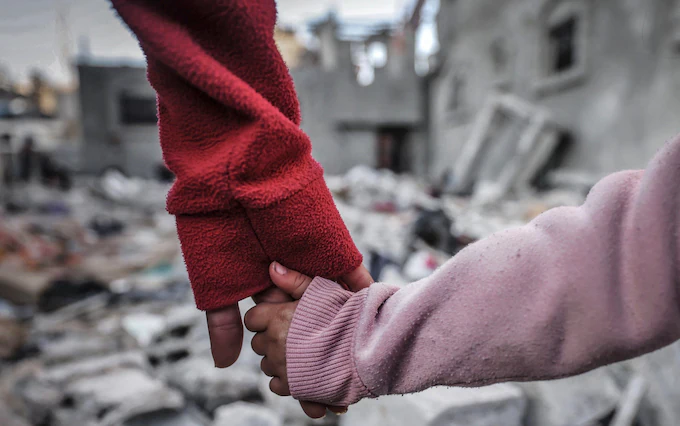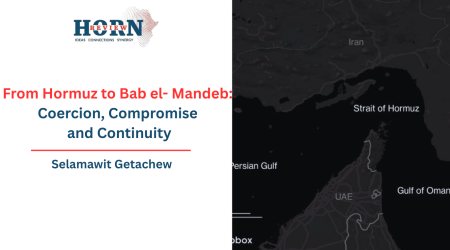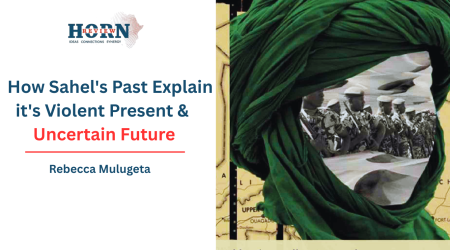
28
May
The AU’s Defining Moment: Why Africa Must Lead on Gaza Peace Efforts
The war in Gaza has evolved into one of the most severe humanitarian crises of our time. Civilians are paying the highest price as bombardments, hostilities, and blockades continue. What the moment demands is not silence or distant condemnation, but active, principled engagement. While attention often focuses on Western powers and regional players, the African Union and its member states—especially Ethiopia—hold a unique position grounded in historical legacy, diplomatic neutrality, and moral authority. That position can and should be used to advocate for peace.
The AU’s foundations are rooted in the struggle for self-determination, unity, and anti-colonialism. These values have informed Africa’s solidarity with all peoples facing marginalization and conflict—including Palestinians. But Africa also holds meaningful diplomatic and economic ties with Israel. Rather than undermining the AU’s ability to act, these dual relationships position it well to offer balanced, constructive mediation. The AU is not tethered to any singular bloc or ideology. It has the freedom—and responsibility—to chart a course that places humanitarian concerns, de-escalation, and justice at the center.
Through its “Silencing the Guns” initiative, aimed at ending all conflicts in Africa by 2030, the AU has developed frameworks that prioritize root-cause resolution, inclusive dialogue, and long-term reconstruction. These principles can be extended beyond Africa’s borders. The crisis in Gaza is not only political—it is a humanitarian emergency with global implications. Africa’s engagement would not be an act of overreach; it would be an expression of solidarity and a reaffirmation of the AU’s commitment to international peace.
A collective African voice, expressed through the AU Peace and Security Council, could influence the international narrative. While many individual states have made statements on the conflict, a unified African stance—calling for an immediate ceasefire, the protection of civilians on all sides, and the urgent facilitation of humanitarian aid—would carry a moral weight that cannot be easily dismissed. The AU has long spoken up on global injustices. This is another such moment.
Africa also brings mediation experience. The continent has witnessed and resolved some of the most complex conflicts of the modern era. While the Israeli–Palestinian conflict is distinct, the AU’s experience with local ownership, phased peace processes, and reconciliation can contribute a new dimension to diplomacy. A high-level AU envoy for the Middle East—chosen for credibility and neutrality—could help open lines of dialogue where traditional actors have failed. Quiet diplomacy, backchannel communication, and confidence-building measures are areas where the AU could play a meaningful role.
At the same time, Africa must emphasize that international law and humanitarian norms apply to all actors. Civilians must never be targets, and collective punishment cannot be justified. The indiscriminate use of force, whether through rockets or airstrikes, causes irreparable harm. The AU’s support for legal avenues, such as its submission to the International Court of Justice regarding obligations in the Occupied Palestinian Territories, signals a commitment to justice without selective bias. If the AU continues to uphold legal accountability consistently—for all sides—it will reinforce its credibility as a neutral but principled broker.
Ethiopia, as host of the AU and a country with established ties to both Israelis and Palestinians, is uniquely positioned. Its history of diplomatic engagement reflects a careful balance. Ethiopia abstained from the 1947 UN Partition Plan, recognized Palestine in 1989, and has maintained deep cooperation with Israel across sectors like security and agriculture. Its Beta Israel community also anchors important cultural ties. This relationship allows for direct channels of communication with Israeli leadership, and an opportunity to advocate for restraint, civilian protection, and renewed political dialogue.
Ethiopia has also hosted a Palestinian embassy and consistently backed the two-state solution. Its relationship with Palestinian leaders carries trust and legitimacy. This gives Ethiopia a chance to engage both sides—not as a partisan actor, but as a voice for de-escalation. By encouraging intra-Palestinian unity, supporting non-violent approaches, and reinforcing institutional development, Ethiopia can play a bridge-building role few others are positioned to attempt.
The potential impact of a proactive African role is considerable. It would reaffirm Africa’s growing role in shaping global peace, not just as a participant, but as a convener. It could also foster unity within the AU itself by reaffirming shared values. Beyond symbolism, every humanitarian corridor opened, every escalation prevented, every life saved is a victory in itself.
Countries that act consistently in defense of peace and justice build credibility that can translate into deeper diplomatic partnerships, expanded trade, and long-term strategic alliances. An African-led contribution to peace—no matter how incremental—would demonstrate Africa’s agency, independence from polarized global politics, and commitment to a rules-based world.
Challenges will undoubtedly arise. The AU must overcome internal divisions, avoid performative diplomacy, and back its positions with sustained action. External powers may resist or attempt to influence Africa’s role. Ethiopia must manage its involvement carefully, maintaining relationships with both sides while staying grounded in principles of humanitarian protection and peaceful resolution.
Africa does not need to take sides in this conflict to take a stand. The AU and its member states have the capacity to be credible advocates for peace, accountability, and dignity for all. As Gaza bleeds and diplomacy stalls, Africa’s silence would be noticed—but so would its action.
By Samiya Mohammed,Researcher,Horn Review










